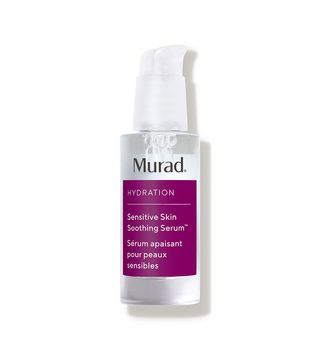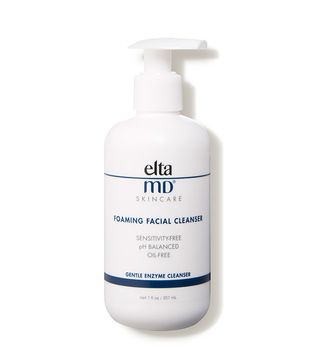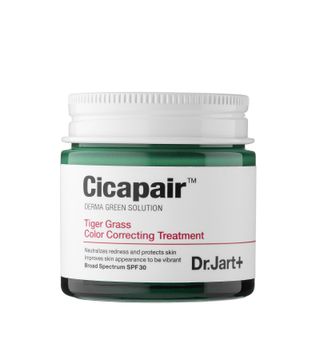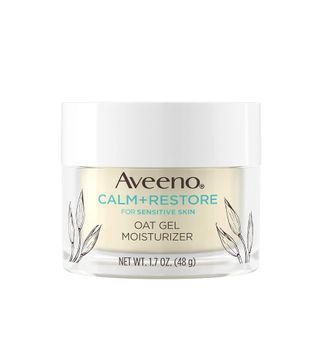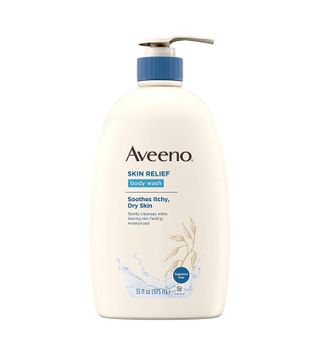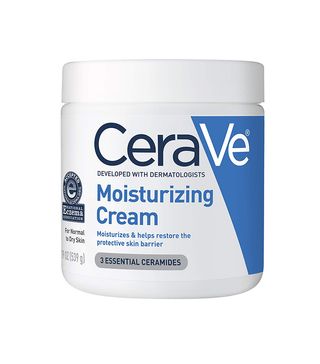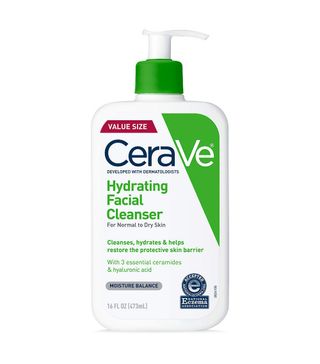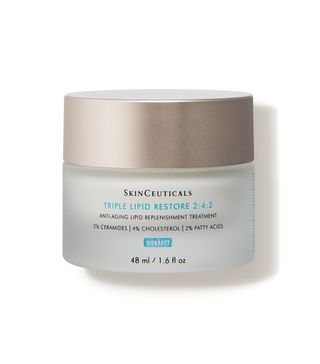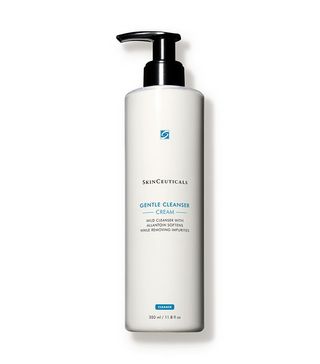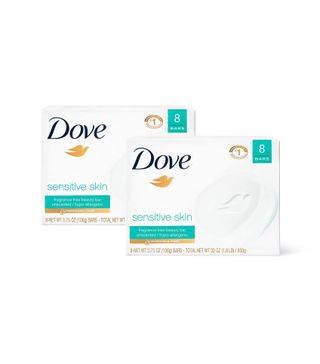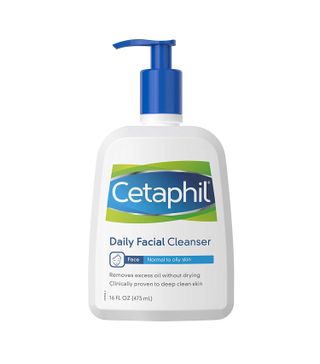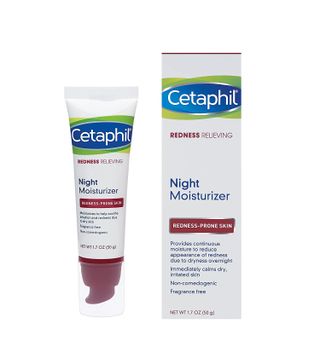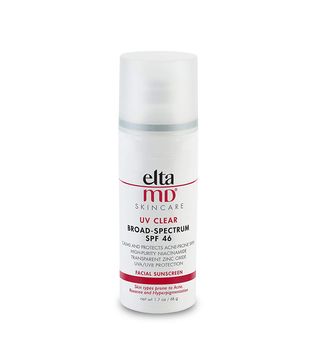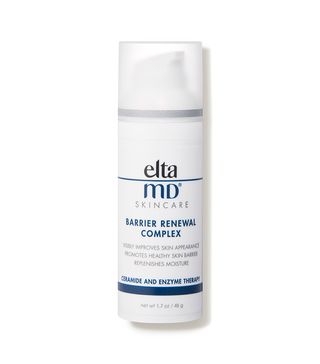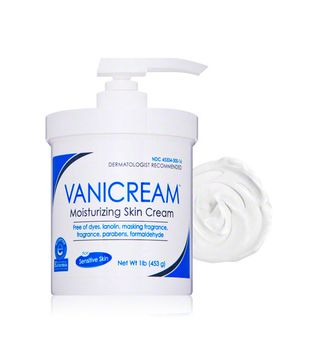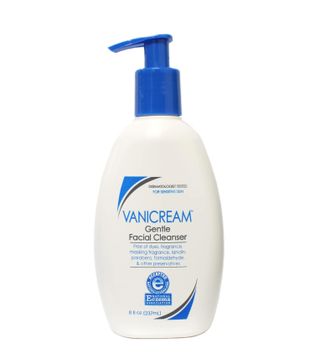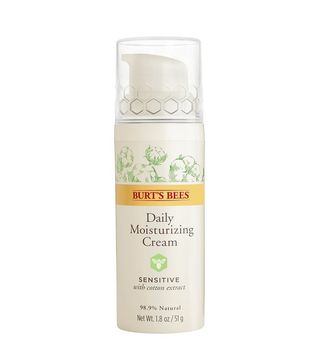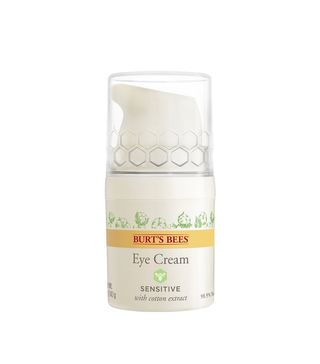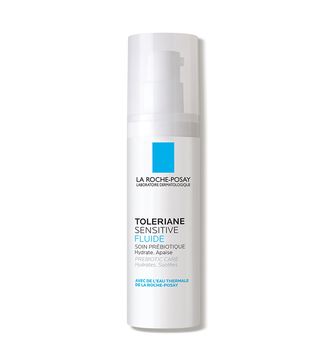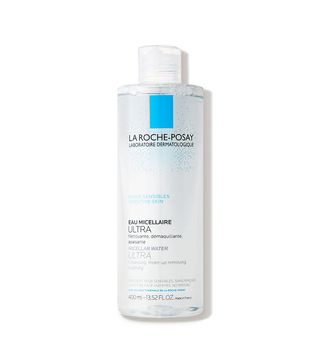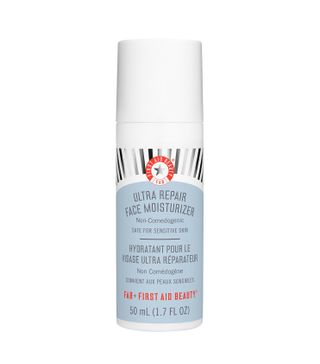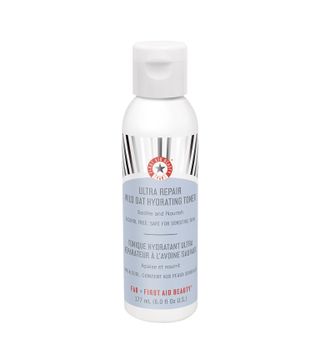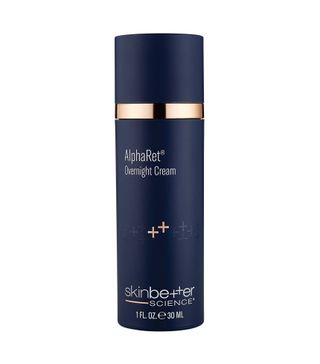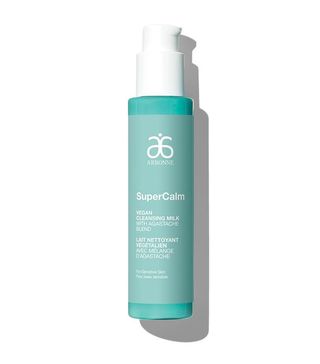Sensitive Skin Types: These Are the Skincare Brands That Just Work
If you have sensitive skin, you know that it can be tough to find products that work for you. Introducing new things into your routine can be a gamble. You probably experience irritation and redness more often than other people.
"Sensitive skin is skin that becomes irritated easily, usually manifesting as red, dry, and sometimes itchy skin (also known as irritant contact dermatitis)," explains board-certified dermatologist Naissan O. Wesley, MD, Arbonne's scientific advisor. "In sensitive skin, this typically occurs after application of topical skincare products that most others would not have that reaction to. Some people with sensitive skin may also have a true allergy to certain topicals, known as allergic contact dermatitis, manifesting as the above symptoms or welts (hives), blisters, or crusts on the skin surface. People with dermatologic conditions such as eczema or rosacea may also suffer from sensitive skin."
A sensitive skin reaction can occur from a disruption in the lipid barrier, the stratum corneum, which is a protective layer on the external surface of the skin that helps trap moisture and protect from irritants like dry air, perfumes, dyes, and sunlight, says board-certified nurse practitioner and founder of Bare Aesthetic Vanessa Coppola, APN-C, FNP-BC. "The protective lipid-rich layer of our skin can become damaged or weakened by simple everyday actives such as frequent bathing or handwashing, outdoor exposure, and the normal changes that occur as part of the aging process," she adds.

So what can you do if you have sensitive skin? Avoid irritants as best as possible. "This is easier said than done, as everything from the sun, skincare products, and even our jewelry can irritate our skin," says board-certified dermatologist Ife Rodney, MD, FAAD, of Eternal Dermatology and Aesthetics. "So the most important step is to know your triggers and look for ways to reduce exposure. Your skin also needs a routine to keep it clean, hydrated, and moisturized. The right moisturizer will help to reinforce your protective skin barrier, making it more difficult for irritants to penetrate your skin." You can also get a patch test from a dermatologist or allergist to see which ingredients could be causing a reaction.
And don't go overboard with products. "With numerous products and formulations on the skincare market today, we are seeing a definite increase in skin sensitivity, commonly from product overload, i.e., using too many products at once in our skincare routines," explains Coppola. "There are wonderful products on the market today that can help improve the many concerns we may have with our skin, such as fine lines, wrinkles, and acne, but you want to approach adding these products to your routine slowly and cautiously."
When introducing a new product to your routine, start slowly. You might want to reduce the frequency of use first as well. Rodney recommends testing it out first on a small patch of skin, like behind your ear or near your armpit. "Remember that it can take up to eight weeks after you start using a new product before irritation or a skin reaction may appear, so give it some time before deciding to incorporate a new product into your regimen," Rodney adds.
A Skincare Routine for Sensitive Skin
Sensitive skin types will benefit from a simple skincare routine. "More importantly, you'll want a routine that does not strip the skin's natural oils," Rodney says. "Start with a gentle, fragrance-free cleanser to get rid of dirt and excess oil. Next, use a moisturizer with ingredients to soothe irritation like glycerin, niacinamide, or colloidal oatmeal. Finally, you can use a serum that's filled with ceramides or hydrating ingredients like hyaluronic acid. And when you're heading out, don’t forget your sunscreen!"
And of course, you'll want to be particular about your products. Sunitha Posina, MD, recommends keeping track of a product's shelf life and avoiding anything that's been sitting around too long.
Ingredients to Look For
Moisturizing is so important if you have sensitive skin. "You want to look for simple products that are pH-balanced and contain moisture-replenishing properties such as hyaluronic acid, glycerin, ceramides, and linoleic and alpha-linolenic acids," says Coppola. "Additional ingredients that can help calm and restore sensitive, irritated skin include colloidal oatmeal, honey, white and green tea extract, and aloe. However, not all ingredients will work well for everyone, so a patch test should be a part of an individual approach to skincare."
Wesley also recommends tiger grass extract, which is also known as gotu kola or centella asiatica leaf extract. It's an ingredient used in traditional Chinese medicine that is soothing and comforting. "Centella asiatica has been shown in numerous published research studies to have wound-healing and anti-inflammatory benefits," she adds. If you are looking for a product that promotes skin cell turnover but can't tolerate retinoids or glycolic acid, Wesley suggests opting for products with ingredients like lactic acid, azelaic acid, and probiotic lysate, which has similar benefits but won't put you in the over-exfoliating zone.
Ingredients to Avoid
Posina says you'll want to stay away from products with ingredients like fragrance, parfum, oxybenzone or avobenzone (found in chemical sunscreens), alcohol, essential oils, sulfates, silicones, and harsh scrubs. Wesley also adds that the common conditioning agent propylene glycol should be avoided if you're not sure what the cause of your sensitive skin is yet—the ingredient was once named the allergen of the year by the Allergic Contact Dermatitis Society.
And be careful with any exfoliants that can dry out your skin. "While hydroxy acids like glycolic and salicylic acid help to give your skin a radiant glow, they can actually disrupt the protective skin barrier in those with sensitive skin, leading to dryness and inflammation," Rodney says.
The Best Skincare Brands to Try for Sensitive Skin
Aveeno
Aveeno's products are all formulated for sensitive skin. The main ingredient in pretty much all of the brand's products is colloidal oatmeal, which replenishes moisture and is a big skin soother. Posina recommends Aveeno's Calm + Restore moisturizer for oily to normal skin types looking for a lighter hydration option. "The oats help calm the skin overall in addition to being hypoallergenic, fragrance-free, alcohol-free, and avoids many other skin irritants," she says.
CeraVe
CeraVe is always a dermatologist favorite. The products are formulated with ceramides and are especially helpful for people with acne, eczema, psoriasis, and dry skin. "Lock in your skin's moisture with CeraVe's Moisturizing Cream," Rodney recommends. "This moisturizer has ceramides as well as hyaluronic acid. It feels light but keeps your skin moisturized throughout the day. Make sure to reapply in the day if you feel your skin drying out."
SkinCeuticals
Beloved by dermatologists, editors, and beauty insiders, SkinCeuticals products are just so effective. "My favorite anti-aging moisturizer for sensitive skin is SkinCeuticals' Triple Lipid Restore 2:4:2. It contains vitamin E, ceramide, and glycerin to boost moisture and protect against harmful free radicals," Rodney says.
Dove
Dove's lineup is ultra-moisturizing, leaving your skin hydrated and soft, whether you're using the soaps or lotions. "Swap out your body wash for the Dove Beauty Bar for Sensitive Skin," Rodney says. "Unlike most soaps which strip your skin of moisture, the Dove bar is hypoallergenic and fragrance-free and contains a quarter moisturizing cream to keep your skin both clean and hydrated."
Cetaphil
Coppola counts Cetaphil and CeraVe as her favorite drugstore brands for sensitive skin. "Both offer cleansers and moisturizers specially formulated for sensitive skin that are hypoallergenic, free of known irritants, and offer gentle pH-balanced formulas," she says.
Rodney also recommends Cetaphil's daily cleanser, which is noncomedogenic, fragrance-free, and targets oil and dirt without drying out your face.
EltaMD
EltaMD's sunscreens are a must for sensitive skin. The broad-spectrum formulas provide strong protection, and they're also lightweight and noncomedogenic. The brand also has some great cleansers and lotions.
"Elta MD broad-spectrum SPF 46 is my absolute favorite for sensitive, acne-prone, or post-procedure skin, as it's oil-free, lightweight, noncomedogenic, and a non-irritating formula," Posina says. "It is a zinc oxide–based sunscreen and contains other ingredients such as niacinamide, which helps with redness in addition to other benefits."
Vanicream
Vanicream is one of my favorite brands because its products are free of fragrances, dyes, and other irritating ingredients. Whenever my skin is super dry and angry, I slather on the moisturizing cream.
Posina also likes Vanicream's cleanser. "This is specifically designed with sensitive skin types in mind, and it's a soap-free formula that is extremely gentle on the skin," she says. "It is free of fragrance, parabens, gluten, dyes, formaldehyde in addition to many other skin irritants."
Burt's Bees
"Burt's Bees offers a sensitive skincare line that is well-tested and contains soothing ingredients such as honey and rice extract," Coppola says.
La Roche-Posay
"La Roche-Posay offers wonderful products for sensitive skin that are rich in ceramides and glycerin and help to moisturize the skin without causing irritation or clogging pores," Coppola says.
First Aid Beauty
First Aid Beauty's lineup is formulated especially for sensitive skin, so none of the products are supposed to cause irritation. All of the products are dermatologist-tested and artificial fragrance–free. Posina recommends the brand for people with dry skin who require intense moisture. "The moisturizer contains several skin-soothing ingredients such as allantoin, colloidal oats, and shea butter, which specifically gives its richness without being irritating," she says.
SkinBetter
"On the higher end of medical-grade skincare, I find SkinBetter Science offers products that provide powerful anti-aging ingredients such as amino acids, antioxidants, and retinoids, often without the irritation commonly associated with the use of these types of products," Coppola explains. "As with the introduction of any new product to your skincare routine, a patch test is well worth the effort."
Arbonne
Wesley loves the products in the Arbonne SuperCalm Collection for people with sensitive skin. "This collection includes a cleansing milk, serum, and soothing hydrator which contain sustainably sourced tiger grass extract, azelaic acid, and probiotic lysate to help soothe skin, reduce its reactivity, and maintain the skin's natural moisture barrier," she says. "They also contain sustainably sourced agastache mexicana extract to help support the skin's moisture barrier, promoting the appearance of radiance with hydration. Additionally, in a clinical study using the line's topical products along with the oral InnerCalm Adaptogenic Powder supplement, there was an additional 20% reduction in skin tone redness after four weeks of use."
Next up: FYI: These Are the Only 9 Sunscreens Dermatologists Recommend for Sensitive Skin
Sarah is lifestyle writer and editor with over 10 years of experience covering health and wellness, interior design, food, beauty, and tech. Born and raised in Los Angeles, she attended New York University and lived in New York for 12 years before returning to L.A. in 2019.
In addition to her work on THE/THIRTY and Who What Wear, she held editor roles at Apartment Therapy, Real Simple, House Beautiful, Elle Decor, and The Bump (sister site of The Knot).
She has a passion for health and wellness, but she especially loves writing about mental health. Her self-care routine consists of five things: a good workout, “me” time on the regular, an intriguing book/podcast/playlist to unwind after a long day, naps, and decorating her home.
